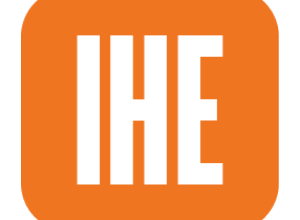Advice for how and why to be an authentic leader in academe (opinion) Premium Scholorships Info
“Authenticity” has joined the lexicon of buzzwords in higher education. As a concept, it is widely regarded as an ideal to strive for; in practice, however, it can sometimes feel like empty jargon. This disconnect comes amid constant pressure on individuals and institutions to present a flawless image, conform to societal expectations and chase after trends.
At the same time, the public’s growing awareness of inauthentic messages and actions by people and brands, including those of colleges and universities, leaves almost no room for missteps. In this way, authenticity has become a litmus test, challenging institutional leadership to maintain balance in the face of competing pressures.
As I navigate this landscape, I find myself drawn to the principles of authentic leadership. Authentic leadership, to me, requires embracing vulnerability and being honest about my strengths and weaknesses while staying true to my beliefs. It’s about being genuine and transparent in my interactions with people and leaning into areas where I have expertise and credibility while finding ways to supplement things I don’t do as well.
For me, being the best dean that I can be doesn’t mean emulating how other deans have led their schools. It means recognizing and focusing on my strengths, including my scholarship in management—which gives me distinct insights into leadership and institutional culture—and my deep understanding and appreciation of the school as an internal candidate for the deanship. But it also means acknowledging my weaknesses, such as having less diversity of perspective due to my long tenure at a single institution. Given how crucial each of these realities is to who I am, I see the preservation and embodiment of authenticity as a strategic imperative—both for my institution and for me.
Investing Fully in the Present
When I first stepped into the role of dean at the University of Iowa’s Tippie College of Business in 2020, I was surprised by the number of inquiries I received about my next aspirations. In fact, within a month of becoming dean, presidential search firms were already reaching out and journalists were asking about my next steps. It was assumed that climbing the hierarchical ladder of academia was the natural progression for any ambitious leader.
Such questions persisted, and I found myself grappling with a truth that felt increasingly at odds with people’s expectations: I had no desire to ascend to a presidency, and I still don’t. The position wasn’t aligned with my current responsibilities or aspirations, nor where I believed my skill set would be best utilized. Identifying the divergence between others’ expectations and my preferences was pivotal for me. Ultimately, it forced me to answer the questions of what I value most, who I am as a leader and how I should lead my college.
Having worked at the University of Iowa for 27 years, I have always appreciated stability and consistency in my professional life, which is why I have little interest in pursuing other roles elsewhere. That has meant passing on opportunities for promotion and advancement that other people might have deemed ideal. But what’s most important to me is investing fully in where I am—whether it’s striving to maximize academic successes and boost student outcomes or enthusiastically representing the institution (even through my wardrobe, which is almost exclusively Hawkeye black and gold!). Yet even with this clarity of who I am and the role I’ve dedicated myself to, leading authentically still creates internal pushes and pulls.
Prioritizing Institutional Strengths
One of the greatest pressures facing institutional leaders is the expectation to continually innovate and drive change. New leaders can feel compelled to make their mark with sweeping transformations. But given the relatively brief tenures of today’s higher education leaders, continually introducing new visions every few years can be disorienting and unsustainable for the faculty members, administrators, students and alumni who outlast those who quickly move on or up.
As a new dean, authentic leadership allowed me to link existing institutional strengths with my ideas to support and enhance them. That approach provided comfort and continuity for the community, which built the trust needed for faculty and staff to participate in planning for our future. It also allowed me to shift from reactively responding to external influences to measuring and talking about our impact, which was based on internal and community priorities. Most important, it allowed me to connect with and better reflect our mission in our work.
Take, for example, how institutions can be enticed to boost their rankings by tinkering with acceptance rates. Many college and university leaders want the same thing: for their programs to be ranked in the top 10 of the categories they value most. And so, even as public declarations of ambivalence toward rankings continue, it is reasonable to assume that many leaders would like to see their institutions’ rankings improve during their tenure. Yet some institutions—like mine, in fact—encounter a disconnect between the desire for prestige and selectivity and the need for accessibility and affordability. At Tippie, which I often refer to as the Midwest’s premier accessible college of business, adopting more stringent admissions criteria would enhance rankings, but it would contradict our public university mission, vision and values that voice our commitment to accessibility for those in our state and beyond. In other words, it would be inauthentic to who we are.
The same can be said for introducing new programs without determining genuine student demand or securing expertise among the faculty. While adding new majors or programs might result in a spike in applications and enrollment, doing so without the supporting expertise compromises our standard of academic excellence and our commitment to student success. At Tippie, one example was our choice not to offer a supply chain–focused credential or track. Demand for supply chain programs spiked in the early days of the pandemic, but we didn’t have enough faculty members with this expertise to introduce such an offering seamlessly and credibly. It would have required diverting significant resources from other areas, and in the end, we let a market opportunity for a buzzworthy program pass us by.
It’s never easy to watch students flock to trendy new majors at other institutions, but leadership is not about adopting every opportunity. It’s about prioritizing investments in areas where we have existing strengths and infrastructure—and where we can make a meaningful difference for our students and with our scholarship while also meeting the demands of the market.
At the same time, using authenticity as a guiding force is not without risks. Almost certainly, any decision that a leader makes will disappoint an important constituency. Everyone has differences in what they deem to be important, and not all of those can be priorities when making necessary choices for an institution. It’s a delicate balance for leaders to appreciate and leverage institutional strengths while resisting the call to deviate from mission. But a strategic approach ensures we maintain our authenticity as a university.
It’s a challenging time to be a leader in higher education. Yet those who open up and stay true to themselves and their institutions can help make headway in the court of public opinion and ensure those negative associations and distrust start to shift. It’s a reminder that true leadership isn’t about conforming to expectations, such as seeking a presidency after a deanship or introducing more selective admissions requirements. Rather, it’s about staying authentic to ourselves and aligned with our institution’s strengths. Higher education leaders need to recognize that we are defined not by the positions we hold but by the impact we make, the trust we build and the principles we uphold.




